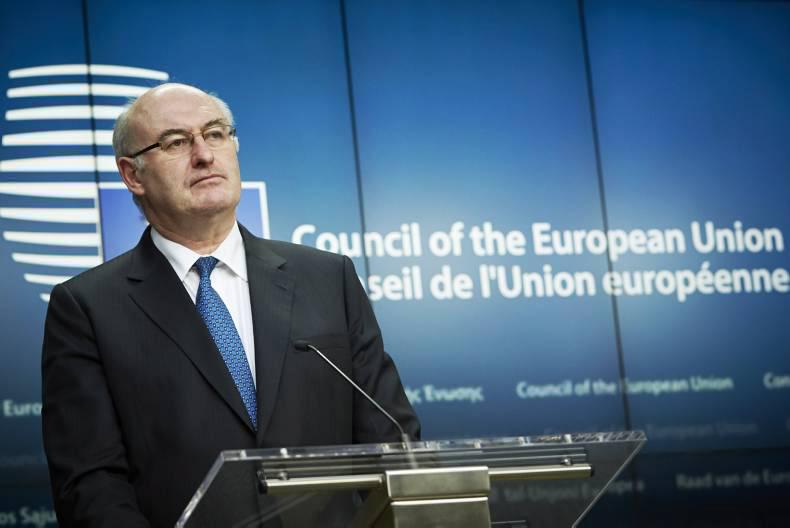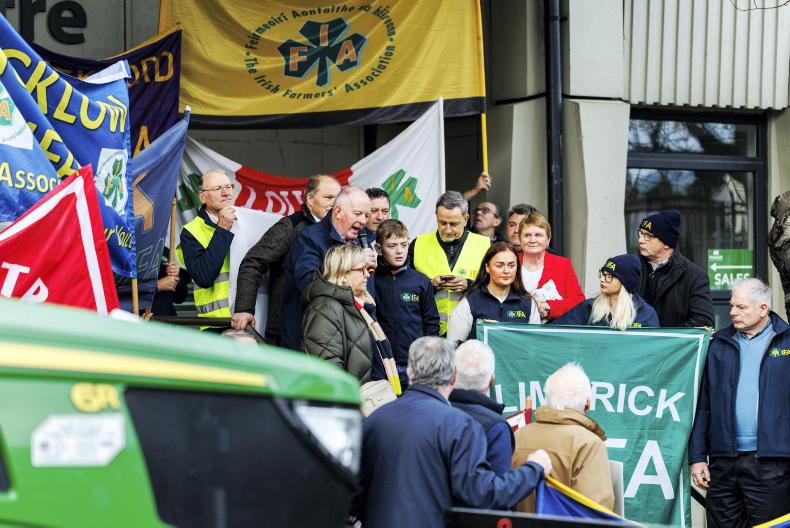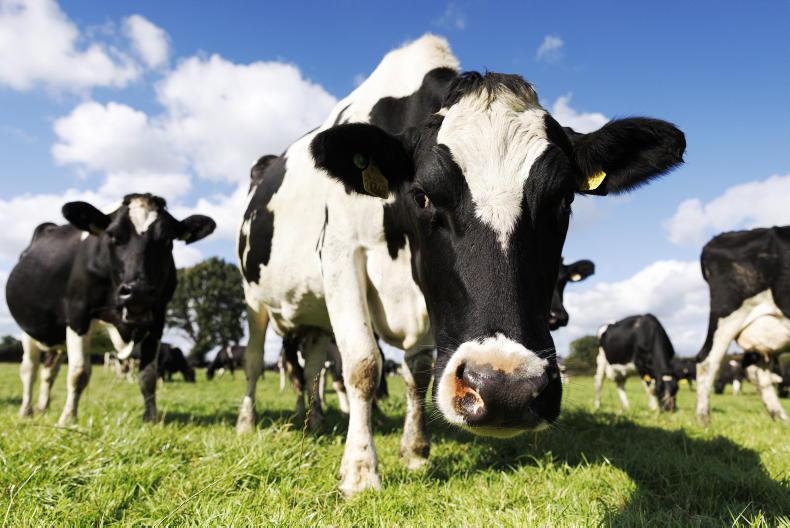Commissioner Hogan made the comments during an interview with Rose O'Donovan of Agra-Facts, where he referenced outgoing Minister for Agriculture Simon Coveney's assertion that Irish dairy farmers would not be availing of the voluntary supply reduction measure announced at the Council of EU agriculture ministers on 14 March.
This new measure, which has yet to be formalised by the Commission, will allow countries to pay farmers out of their own domestic budgets to produce less milk in an attempt to rebalance market supply and demand.
Speaking exclusively to the Irish Farmers Journal, Minister Coveney flatly asserted that he did not see Ireland partaking in the scheme.
"The one thing Irish farmers are not asking for at the moment is for us to pay them to reduce output," Coveney said, adding that a return to supply controls would be "very negative".
The minister also said that he would like to see Irish farmers ready to take advantage of an improving milk price when that happens.
Not for member states to decide
However, in the course of his interview with O'Donovan, Commissioner Hogan stressed that "despite the political signal coming from Minister Coveney" that Irish farmers would not be participating, it is ultimately up to individual co-ops and their board of directors to decide whether they wish to participate in the scheme.
"It is not for the member states to decide whether they wish to participate in this voluntary supply management tool that is available under the legislation that we have," the Commissioner said. "Rather, it is for the individual co-ops, producer organisations and farmers themselves to choose whether they wish to participate."
However, according to the new head of the Irish Dairy Industries Association (IDIA), Conor Mulvilhill, formerly of the Irish Co-operative Organisation Society, there is unlikely to be any participation by dairy processors in Ireland in the scheme.
"Supply management makes no economic sense whatsoever at a time when dairy markets are dictated by global forces," Mulvilhill told the Irish Farmers Journal, echoing Minister Coveney's sentiments.
"They will simply allow our competitors to gain the global market share Ireland targets."
Structural reform
Whatever the take-up by individual co-ops in member states of this voluntary supply reduction scheme, for which France was the biggest supporter, Commissioner Hogan added that one measure alone is not going to resolve the difficulties in the dairy and pig meat markets at the moment.
"We have to see what member states are going to do themselves to re-structure and modernise and adapt to the new market orientation of CAP 2014-2020," he said.
"It will be interesting to see if member states use the €420m aid money I granted last September to bring about structural reform which is just as important as the temporary difficulties we have in supply and demand. Not all member states have done that," Hogan continued.
Only 10 out of the 28 member states have utilised their share of the €420m emergency fund announced last September, Ireland included.
Ireland used its €13.7m share of the money to provide a top-up to struggling dairy and pig farmers around the country.
Read more
What was agreed by EU agriculture ministers this week?
Commissioner Hogan made the comments during an interview with Rose O'Donovan of Agra-Facts, where he referenced outgoing Minister for Agriculture Simon Coveney's assertion that Irish dairy farmers would not be availing of the voluntary supply reduction measure announced at the Council of EU agriculture ministers on 14 March.
This new measure, which has yet to be formalised by the Commission, will allow countries to pay farmers out of their own domestic budgets to produce less milk in an attempt to rebalance market supply and demand.
Speaking exclusively to the Irish Farmers Journal, Minister Coveney flatly asserted that he did not see Ireland partaking in the scheme.
"The one thing Irish farmers are not asking for at the moment is for us to pay them to reduce output," Coveney said, adding that a return to supply controls would be "very negative".
The minister also said that he would like to see Irish farmers ready to take advantage of an improving milk price when that happens.
Not for member states to decide
However, in the course of his interview with O'Donovan, Commissioner Hogan stressed that "despite the political signal coming from Minister Coveney" that Irish farmers would not be participating, it is ultimately up to individual co-ops and their board of directors to decide whether they wish to participate in the scheme.
"It is not for the member states to decide whether they wish to participate in this voluntary supply management tool that is available under the legislation that we have," the Commissioner said. "Rather, it is for the individual co-ops, producer organisations and farmers themselves to choose whether they wish to participate."
However, according to the new head of the Irish Dairy Industries Association (IDIA), Conor Mulvilhill, formerly of the Irish Co-operative Organisation Society, there is unlikely to be any participation by dairy processors in Ireland in the scheme.
"Supply management makes no economic sense whatsoever at a time when dairy markets are dictated by global forces," Mulvilhill told the Irish Farmers Journal, echoing Minister Coveney's sentiments.
"They will simply allow our competitors to gain the global market share Ireland targets."
Structural reform
Whatever the take-up by individual co-ops in member states of this voluntary supply reduction scheme, for which France was the biggest supporter, Commissioner Hogan added that one measure alone is not going to resolve the difficulties in the dairy and pig meat markets at the moment.
"We have to see what member states are going to do themselves to re-structure and modernise and adapt to the new market orientation of CAP 2014-2020," he said.
"It will be interesting to see if member states use the €420m aid money I granted last September to bring about structural reform which is just as important as the temporary difficulties we have in supply and demand. Not all member states have done that," Hogan continued.
Only 10 out of the 28 member states have utilised their share of the €420m emergency fund announced last September, Ireland included.
Ireland used its €13.7m share of the money to provide a top-up to struggling dairy and pig farmers around the country.
Read more
What was agreed by EU agriculture ministers this week?










SHARING OPTIONS